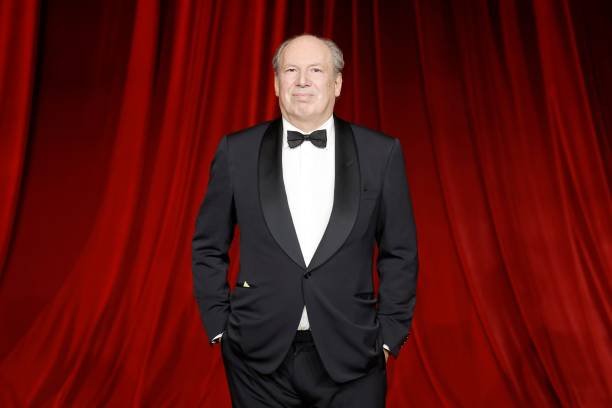Hans Zimmer
In a stern message to the Academy, Hans Zimmer expresses his displeasure about Dune 2’s Oscar rejection, saying, “Don’t tell me that makes me ineligible.” Here’s the update

Hans Zimmer criticizes The Academy for setting a harmful precedent by disqualifying Dune 2’s original score, shifting the focus to award eligibility instead. Zimmer’s score was a standout feature of Denis Villeneuve’s Dune films, earning him an Academy Award for Best Original Score for the first movie at the 94th Oscars. However, it was recently revealed that despite the acclaim for Zimmer’s work in Dune: Part 2, the film’s score was deemed ineligible for the Original Score category.

Zimmer has now spoken out about the issue, expressing his criticism of The Academy’s decision to overlook Dune: Part 2’s music. While Zimmer may still receive a nomination for his work on Steve McQueen’s Blitz score, he warned that The Academy’s actions could set a dangerous precedent. He fears that studios may begin to focus on creating sequels purely for the sake of awards eligibility rather than artistic merit.
Hans Zimmer criticizes The Academy’s decision to disqualify his score for Dune: Part 2 from this year’s Oscars. The reason for the ineligibility is that the score exceeded The Academy’s rule, which states that sequels and franchise scores cannot use more than 20% of pre-existing music. Zimmer’s score for the sequel incorporated significant elements from the first Dune film, leading to the disqualification.
Despite The Academy’s rules preventing the score from competing for an Oscar, Hans Zimmer’s music for Dune: Part 2 remains eligible for other prestigious awards, including the Critics Choice Awards, Golden Globes, BAFTA, and even the Grammys. Zimmer’s music was integral to the sequel, just as it was for the first film. In an interview with Variety, Zimmer criticized The Academy’s decision, explaining that Dune 2 wasn’t a typical sequel, but rather a large story split into two parts. He argued that it wouldn’t have made sense to change the character themes. Zimmer revealed, “I knew what the last note of the second one was before I wrote the first note of the first one,” and that he had the full arc of the Dune theme in his mind from the start.
Zimmer expressed concern that The Academy’s ruling could discourage studios from pursuing stories like Dune and The Lord of the Rings, which are told across multiple films. He argued, “What you’re saying is you shouldn’t be allowed to use this form of storytelling. The Lord of the Rings used this form of storytelling as well.” Zimmer pointed out that these stories were split into multiple parts due to their vast scope, and The Academy’s decision could undermine that approach.
Zimmer further expressed that the rule seemed like an attempt by The Academy to control how art is created, limiting a composer’s creative freedom. He warned, “My point is be careful about these rules because what you’re doing is, in the back of the studio’s mind, the Oscars are important, and you’re influencing the way you are saying whether we can create art or not.” Zimmer argued that by enforcing such restrictions, The Academy was essentially telling creators, “You can’t do that because we won’t allow art to be nominated.” He emphasized that artists should have the freedom to create without such constraints.
Zimmer’s concerns are valid, as the rule sets a precedent where composers may feel pressured to create music that doesn’t align with the narrative or emotional tone of the story. For a film like Dune, introducing entirely new themes for the characters in the second movie would have felt out of place, potentially disrupting the continuity of the story and negatively impacting the audience’s viewing experience. Zimmer’s approach, which builds on the established themes, helps maintain the integrity of the narrative and provides a cohesive emotional journey across both films.

Hans Zimmer discusses how the rule discourages the creation of long music scores, despite critics arguing that modern audiences have short attention spans. He pointed out that his 14-minute piece for Pirates of the Caribbean and 22-minute piece for The Dark Knight successfully captivated audiences during his concerts. Zimmer also mentioned that when Denis Villeneuve set out to create a two-part, five-hour film, he was confident it would engage viewers.
Zimmer explained that in order to create his score for a long film, he had to carefully develop his themes over the course of five hours. He expressed frustration that The Academy’s rules failed to acknowledge this effort when his score was deemed ineligible. Speaking to Variety, Zimmer said:
“When Denis decided to make Dune in two long parts, he knew the audience would stay engaged. But part of that is being able to develop your themes over time. You have to think about how those themes evolve across five hours. So, don’t tell me that makes me ineligible. It’s not just about me; it’s about the film.”
This isn’t the first time the Academy’s rule has excluded a deserving contender. Previous victims of this rule include There Will Be Blood, Black Swan, Drive, The Master, and Arrival.
-

 AUBURN TIGERS9 months ago
AUBURN TIGERS9 months agoBREAKING: Alvin Henderson, a coveted running back prospect, is set to announce his commitment to Auburn football.
-

 Pittsburgh Steelers9 months ago
Pittsburgh Steelers9 months agoGREAT NEWS: The Steelers are bringing him back
-

 Blog8 months ago
Blog8 months agoREPORT: Pittsburgh Steelers to fire Mike Tomlin due to……
-

 West Bromwich Albion8 months ago
West Bromwich Albion8 months agoCost £15m, now worth just £1.6m: West Brom blundered badly with a former flop
-

 West Bromwich Albion8 months ago
West Bromwich Albion8 months agoWest Brom run rule over Everton and Wolves stars as player says goodbye to club
-

 Derby County8 months ago
Derby County8 months agoDerby County has accepted a £400,000 offer from Everton.
-

 Birmingham9 months ago
Birmingham9 months agoGary Rowett makes pledge after ‘electric’ prediction and Birmingham City fitness update
-

 SUNDERLAND9 months ago
SUNDERLAND9 months agoJournalist says Sunderland could make “statement appointment” with move for “tremendous” manager






